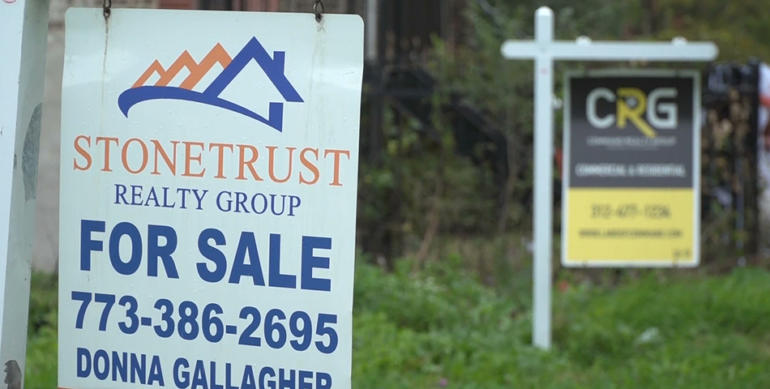In just under a year, Americans will head to the polls for the 2020 U.S. Presidential election. A large field of Democratic candidates is vying to challenge Republican Donald Trump for the job.
One of the key issues emerging in the campaign is affordable housing, and the candidates are rolling out plans to address it.
Though economic growth is slowing, that that hasn’t deterred one builder in Chicago who just broke ground on 1000M, a 74-story condominium skyscraper. CGTN’s Dan Williams takes a look.
Michael Golden is a co-founder of Real Estate company, @properties. He remains confident in the market.
“I think that actually the timing could be perfect for a building like this. We had a great run up from 2011/2012 to 2017. ’18 and ’19 were both, not bad years but we saw a little of a retraction in the number of transactions happening in the market place. It is a normal cycle. It is not 2008, 2009 – the collapse we saw before. But a normal cycle in real estate,” Golden said.
But elsewhere in the city, the signs are less positive. Paul Stepanovich operates a property company in the south and west side of Chicago. Part of his job is to deal with foreclosures.
That often means entering buildings that have been left in poor condition. Moldy food, litter, and intruders are just some of the problems he encounters.
He believes the property market is ripe for a drop.
“What I feel right now is that a lot of people are on the back of the rollercoaster. It’s still going up but they don’t see that it’s starting to go down the other side. This time round the bomb is going to be a little bit slower. And it is going to happen a little bit longer.”
The Trump administration warns that the U.S. housing finance system is worse off today than in 2008. It says Fannie Mae and Freddie Mac, the two government-controlled enterprises that stand behind half of the country’s mortgages, are woefully undercapitalized. A complete overhaul, says Trump’s team, is what’s needed.
“The level of debt is increasing,” said Abol Jalilvand, Professor of Finance at the Quinlan School of Business at Loyola University Chicago. “If the economy does not perform as we like it, if the GDP growth rate goes to below 2% or 1.5%, all of a sudden all of these borrowers, corporate, consumer, government, they are going to be saddled with significant interest payments, and the revenues are not going to be there to support it. So if that happens, then it is possible that the consumers will not be able to support their mortgages, and then you will see more delinquencies in the mortgage market.”
Sales of new single-family homes are on the slide with median house prices in September down 8.8% from a year ago. All worrying signs for the economy and the U.S. housing market ahead of an election year.
 CGTN America
CGTN America

